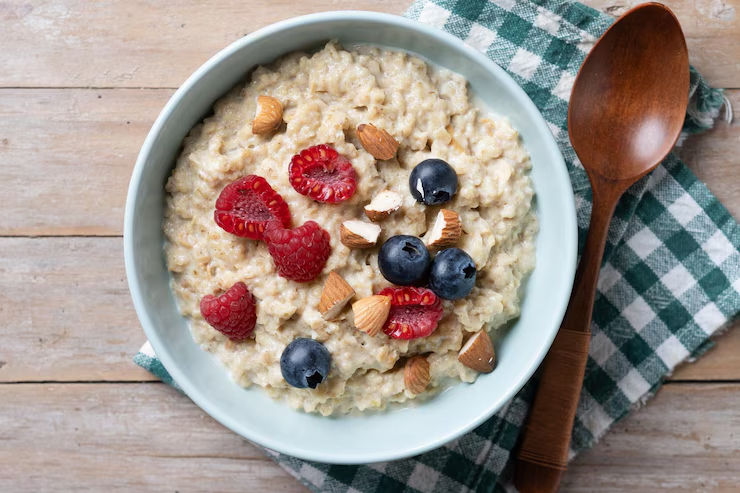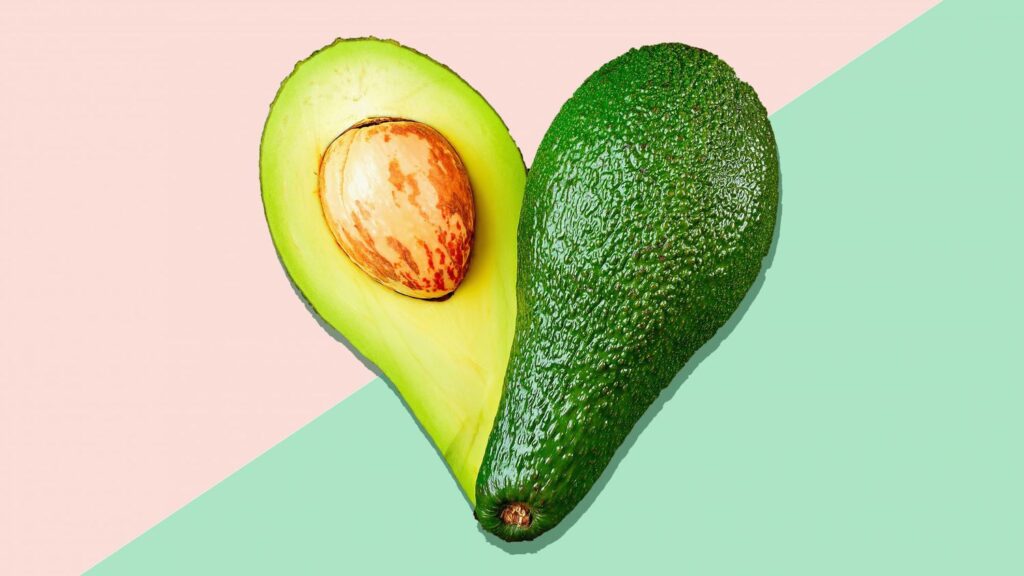The heart is undeniably one of the most vital organs in the human body. It serves as the powerhouse, pumping oxygenated blood to various organs and tissues, which is crucial for the overall functioning of the body. Given its fundamental role, taking proactive steps to preserve heart health should be a priority for everyone, especially in a world where heart diseases are prevalent.
According to the World Health Organization (WHO), cardiovascular diseases (CVDs) are the leading cause of death worldwide. These diseases encompass a range of conditions, including coronary artery disease, heart attacks, heart failure, and arrhythmias. Often, these conditions are associated with risk factors such as high blood pressure, diabetes, high cholesterol, smoking, and a sedentary lifestyle.
While some risk factors are out of our control, there is one key factor we can influence significantly: diet. A healthy diet plays a vital role in managing heart disease risk factors like cholesterol levels, blood pressure, and weight. By making mindful choices, we can help our hearts stay strong and reduce the likelihood of cardiovascular diseases.

In this article, we will explore the importance of heart health, why diet matters, and the top 10 foods that are especially beneficial for a healthy heart.
Why Heart Health Matters
The health of your heart can significantly influence your overall well-being. When your heart functions optimally, the rest of your body functions well too. Conversely, when heart health is compromised, the effects can ripple throughout your entire body, affecting everything from energy levels to organ function.
There are several reasons why maintaining heart health is so crucial:
Longevity: A healthy heart is essential for a long, fulfilling life. Heart disease is one of the main causes of premature death, but the good news is that many cardiovascular problems can be prevented or managed with the right lifestyle choices. A healthy diet for heart, along with regular physical activity, can significantly reduce the risk of heart disease. By maintaining a healthy heart, you can increase your chances of living a longer, healthier life. A diet rich in nutrients that support heart health plays a crucial role in extending your life expectancy.
Improved Circulation: The heart plays a vital role in pumping blood through your arteries, veins, and capillaries. When your heart is healthy, blood circulation stays efficient, ensuring that oxygen and nutrients reach every part of your body, from tissues to muscles to organs. A healthy diet heart supports better circulation by reducing plaque buildup in the arteries and improving blood flow. Eating foods that promote heart health can help keep your circulatory system running smoothly, boosting overall health and energy levels.
Better Mood and Mental Health: The connection between heart health and mental well-being is stronger than most people realize. Poor cardiovascular health can contribute to mental health issues like depression and anxiety. On the other hand, adopting a healthy diet for heart can improve both physical and mental health. Healthy habits, including eating a balanced diet and staying active, are proven to improve mood and reduce the risk of depression. By nourishing your heart with the right foods, you can help keep your mind and emotions in a more balanced and positive state.
Reduced Risk of Other Diseases: Heart disease is closely linked to various other health conditions such as stroke, diabetes, and kidney disease. By maintaining a healthy heart, you lower the risk of developing these associated diseases. A healthy diet for heart helps to keep your blood pressure, cholesterol, and blood sugar levels in check, which in turn reduces the chances of complications. Eating nutrient-dense foods that support heart health can not only improve your cardiovascular system but also protect you from other serious health conditions.
The Role of Diet in Heart Health
Diet plays a crucial role in supporting heart health. What we eat directly impacts important factors like cholesterol levels, blood pressure, body weight, and inflammation—each of which affects heart health. A healthy diet heart helps maintain these factors in balance, reducing the risk of heart disease and other cardiovascular issues. By choosing nutrient-rich foods and avoiding harmful ones, you can support your heart and improve overall health, ensuring a healthier and longer life.
Here’s why diet plays such an essential role:
Regulating Cholesterol: High cholesterol is a leading risk factor for heart disease, particularly when “bad” LDL cholesterol levels are elevated. A healthy diet for heart plays a crucial role in managing cholesterol levels by lowering LDL cholesterol and boosting the levels of “good” HDL cholesterol. Foods high in unhealthy fats, like trans fats and saturated fats, can raise cholesterol levels, but by choosing heart-healthy foods such as fruits, vegetables, whole grains, and healthy fats, you can help maintain a healthy balance and reduce the risk of cardiovascular problems.

Managing Blood Pressure: High blood pressure (hypertension) is another significant risk factor for heart disease. A healthy diet for heart, rich in potassium, magnesium, and fiber, can help regulate blood pressure and reduce the strain on the heart. On the other hand, foods high in sodium, such as processed foods and salty snacks, can contribute to high blood pressure. By focusing on a diet that includes fresh fruits, vegetables, lean proteins, and whole grains, you can support healthy blood pressure levels and protect your heart.
Controlling Weight: Being overweight or obese significantly increases the risk of developing heart disease. A healthy diet for heart is essential for maintaining a healthy weight by providing the right balance of nutrients and calories. Eating a balanced, nutrient-dense diet helps control body weight, boosts metabolism, and supports overall well-being. By focusing on portion control and nutrient-rich foods, you can manage your weight effectively, reducing the burden on your heart and lowering your risk for various cardiovascular conditions.
Reducing Inflammation: Chronic inflammation is a key contributor to several heart conditions, including arteriosclerosis, which can damage blood vessels. A healthy diet for heart that includes anti-inflammatory foods, such as omega-3 fatty acids found in fish and antioxidants found in colorful fruits and vegetables, can help reduce inflammation. These foods not only protect the heart but also promote overall health by supporting the immune system and reducing the risk of further cardiovascular damage.
Regulating Blood Sugar: Diet is critical for managing blood sugar levels, especially for individuals with type 2 diabetes. Uncontrolled blood sugar can increase the risk of heart disease. A healthy diet for heart, rich in whole grains, healthy fats, and fiber, can help maintain stable blood glucose levels and prevent insulin resistance. By making healthier food choices, individuals can better manage their blood sugar levels, reduce the risk of complications, and support heart health in the long run.
Top 10 Heart-Healthy Foods
Now that we’ve established why diet is crucial for heart health, let’s dive into the top 10 heart-healthy foods that should be part of your diet. These foods are packed with nutrients that promote cardiovascular health, reduce inflammation, and protect your heart from disease.
Oats (Whole Grains)
Oats are a fantastic addition to a healthy diet for heart due to their high content of soluble fiber. This type of fiber helps lower levels of LDL (bad) cholesterol in the blood by binding with cholesterol and aiding in its removal from the body. Reducing LDL cholesterol is crucial for lowering the risk of heart disease.
Starting your day with a bowl of oatmeal or adding oats to smoothies can be an easy and delicious way to support heart health. Including oats into your daily routine provides a simple heart-healthy choice to promote overall cardiovascular well-being.

Key nutrients: Beta-glucan fiber, antioxidants, magnesium, and B vitamins.
Heart benefits: Reduces cholesterol, improves blood sugar control, and promotes healthy digestion.
Fatty Fish (Salmon, Mackerel, Sardines)
Fatty fish, such as salmon and mackerel, are a valuable part of a healthy diet for heart because they are packed with omega-3 fatty acids. These healthy fats help lower triglyceride levels, reduce blood pressure, and decrease inflammation in the body. Incorporating omega-3-rich fish into your meals can have a significant positive impact on heart health.
In addition to these benefits, omega-3s are also known for reducing the risk of arrhythmias, or irregular heartbeats. Adding fatty fish to your diet regularly is an excellent way to support cardiovascular health and maintain a strong, healthy heart.
Key nutrients: Omega-3 fatty acids (EPA and DHA), vitamin D, protein.
Heart benefits: Reduces triglycerides, improves heart rhythm, and lowers inflammation.
Berries (Blueberries, Strawberries, Raspberries)
Berries, such as strawberries, blueberries, and raspberries, are a powerhouse of antioxidants, including flavonoids and anthocyanins. These compounds play a vital role in protecting the heart by reducing oxidative stress and inflammation, both of which can contribute to cardiovascular problems. Incorporating berries into a healthy diet for heart can significantly boost heart health.
In addition to their antioxidant properties, berries also help improve blood vessel function and reduce blood pressure. By adding a variety of berries to your meals, you can support your heart’s health, promoting better circulation and reducing the risk of heart-related conditions.

Key nutrients: Antioxidants, vitamin C, fiber, and potassium.
Heart benefits: Improves endothelial function (blood vessel health), reduces blood pressure, and protects against oxidative damage.
Leafy Greens (Spinach, Kale, Swiss Chard)
Leafy greens, such as spinach, kale, and collard greens, are packed with essential vitamins, minerals, and fiber, making them a key component of a healthy diet for heart. They are especially rich in potassium, which helps balance sodium levels in the body and supports the regulation of blood pressure, promoting overall heart health.
In addition to their potassium content, leafy greens are also high in antioxidants that help reduce inflammation and oxidative stress, both of which can damage the heart. Including these nutritious vegetables in your meals is a simple way to support cardiovascular health and protect your heart.
Key nutrients: Vitamin K, folate, magnesium, and antioxidants.
Heart benefits: Helps control blood pressure, reduces inflammation, and supports overall cardiovascular health.
Nuts (Almonds, Walnuts, Pistachios)
Nuts, such as walnuts, almonds, and pistachios, are an excellent addition to a healthy diet for heart. They are packed with heart-healthy fats, fiber, and protein. Walnuts are particularly rich in omega-3 fatty acids, while almonds and pistachios provide monounsaturated fats. These healthy fats help lower LDL (bad) cholesterol and triglyceride levels, reducing the risk of heart disease.
Including a variety of nuts in your diet can offer numerous cardiovascular benefits. Regular consumption of nuts is a simple, nutritious way to support heart health, helping to maintain healthy cholesterol levels and promote overall well-being.
Key nutrients: Healthy fats, protein, fiber, vitamin E, and magnesium.
Heart benefits: Lowers LDL cholesterol, reduces inflammation, and improves blood vessel function.
Avocados
Avocados are a great addition to a healthy diet for heart due to their high content of monounsaturated fats. These healthy fats help reduce LDL (bad) cholesterol while raising HDL (good) cholesterol, promoting overall heart health. Including avocados in your meals can significantly support healthy cholesterol levels.
In addition to healthy fats, avocados are rich in potassium, a mineral that plays a key role in regulating blood pressure. By including avocados into your diet, you can help maintain healthy blood pressure levels, further supporting cardiovascular health and reducing the risk of heart disease.

Key nutrients: Monounsaturated fats, potassium, fiber, and vitamins E and K.
Heart benefits: Reduces LDL cholesterol, raises HDL cholesterol, and helps regulate blood pressure.
Beans and Legumes (Lentils, Chickpeas, Black Beans)
Beans and legumes are an excellent addition to a healthy diet for heart. These plant-based protein sources are high in fiber, which helps reduce cholesterol levels and improve blood sugar control. By including beans and legumes in your meals, you can support better heart health by managing cholesterol and blood sugar levels effectively.
The protein in beans and legumes also plays a crucial role in reducing inflammation and maintaining muscle mass, both of which are important for overall cardiovascular health. Including these nutrient-dense foods into your diet can help protect your heart and improve overall well-being.
Key nutrients: Protein, fiber, folate, iron, and magnesium.
Heart benefits: Lowers cholesterol, improves blood sugar control, and supports heart function.
Tomatoes
Tomatoes are a valuable addition to a healthy diet for heart, as they are rich in lycopene, a powerful antioxidant. Lycopene helps protect the heart by preventing oxidative damage and reducing inflammation, both of which can contribute to heart disease. By including tomatoes in your meals, you can support heart health and reduce the risk of cardiovascular issues.
Cooking tomatoes, such as in tomato sauce, actually increases the bioavailability of lycopene, making it easier for the body to absorb and benefit from this heart-healthy antioxidant. Adding cooked tomatoes to your diet can further enhance cardiovascular protection.
Key nutrients: Lycopene, vitamin C, potassium, and fiber.
Heart benefits: Reduces inflammation, protects against oxidative damage, and improves blood vessel function.
Olive Oil
Olive oil is a key component of a healthy diet for heart, particularly in the Mediterranean diet, which is renowned for its heart-healthy benefits. Rich in monounsaturated fats and antioxidants, olive oil helps lower LDL (bad) cholesterol while reducing inflammation, both of which contribute to improved heart health.
In addition to its cholesterol-lowering properties, olive oil also promotes healthy blood vessel function, supporting overall cardiovascular health. By incorporating olive oil into your meals, you can enjoy its numerous benefits and make a simple, heart-healthy choice that enhances your diet and supports a strong, healthy heart.

Key nutrients: Monounsaturated fats, antioxidants, vitamin E.
Heart benefits: Reduces LDL cholesterol, lowers blood pressure, and protects against heart disease.
Conclusion: A Heart-Healthy Lifestyle
In conclusion, adopting a healthy diet for heart health is one of the most effective ways to prevent cardiovascular diseases and enhance overall well-being. The foods we eat can directly impact key heart health factors like cholesterol levels, blood pressure, and inflammation. By incorporating heart-boosting foods like oats, fatty fish, berries, leafy greens, and healthy fats into your daily diet, you can significantly reduce your risk of heart disease.
Remember, it’s not just about individual foods but also about cultivating a balanced, sustainable approach to eating that supports long-term heart health. Alongside a nutritious diet, regular exercise, stress management, and adequate sleep are essential for maintaining a strong, healthy heart. By prioritizing a healthy diet for heart health today, you can lay the foundation for a vibrant, disease-free tomorrow.
FAQs
- What is the best diet to follow for heart health ?
A heart-healthy diet emphasizes foods that reduce cholesterol, blood pressure, and inflammation. The best choices include whole grains (like oats), fatty fish (salmon, mackerel), nuts, berries, leafy greens, olive oil, and beans. Limiting processed foods, added sugars, and unhealthy fats (saturated and trans fats) is also crucial for heart health. - Can a healthy diet really lower my cholesterol levels ?
Yes, a healthy diet can significantly reduce LDL (bad) cholesterol levels and increase HDL (good) cholesterol. Foods high in soluble fiber (e.g., oats, beans), healthy fats (e.g., avocado, olive oil), and omega-3 fatty acids (e.g., fatty fish) are particularly effective in improving cholesterol profiles. - How does a healthy diet prevent heart disease ?
A heart-healthy diet helps by controlling risk factors like high blood pressure, high cholesterol, and inflammation. Nutrient-rich foods like fruits, vegetables, whole grains, and healthy fats work to improve circulation, lower triglycerides, and reduce arterial plaque buildup, thereby preventing heart disease. - Are there any specific foods I should avoid to maintain heart health ?
To support heart health, avoid foods high in saturated and trans fats, such as processed meats, fried foods, and baked goods made with hydrogenated oils. Also limit foods high in sodium (e.g., packaged snacks) and refined sugars (e.g., sugary drinks), which can increase the risk of heart disease. - How quickly will I see results from a heart-healthy diet ?
Results from adopting a healthy diet for heart health can vary, but improvements in blood pressure and cholesterol levels can often be seen within a few weeks to months. Consistency is key, and long-term benefits, such as reduced risk of heart disease and stroke, are achieved over time.


